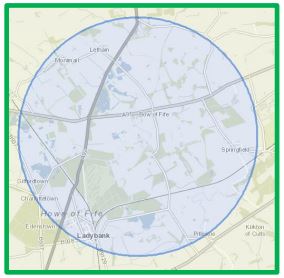Published Date: Dec 23rd, 2022
Fife Council’s head of protective services Nigel Kerr said the council is supporting the Scottish Government’s Animal and Plant Health Agency now that an outbreak of avian flu has been confirmed at a premises near Ladybank.
He added: “We are working closely with partners in APHA, Fife Coast and Countryside Trust, and Fife NHS, monitoring and advising on this situation.
“Once avian flu has been confirmed, there are strict national guidelines we have to follow when dealing with ill or dead birds. Disease control zones and restrictions are in place in the area. We’re following all the national guidance and supporting APHA while this outbreak is dealt with.
“The team from APHA are actively contacting bird keepers within the disease control zone providing advice.”
While bird flu remains an issue it’s really important to follow this advice:
- Don't pick up or touch dead or sick wild birds
- Keep pets/dogs away from any dead or sick birds
- Don't feed wild waterfowl
- Don't touch wild bird feathers or surfaces contaminated with wild bird droppings
- If you keep poultry or other birds, wash your hands and clean and disinfect your footwear before tending to your birds
Find out more at www.gov.uk/guidance/avian-influenza-bird-flu
Important Information from APHA for anyone in the Ladybank area – please read and take action!
Highly pathogenic avian influenza (bird flu) has been confirmed near Ladybank on 22 December 2022 - disease control zones & restrictions are in place.
- Email your contact details to APHA.Scotland@apha.gov.uk
- or phone 03000 600 709 (choose option 1)
APHA's dedicated team will complete a brief questionnaire with you, provide more detailed information - including biosecurity and veterinary advice if required to allow you to protect your birds from the virus - and let you know what the next steps are.
You can find more information on avian influenza (bird flu) by visiting https://www.gov.scot/publications/avian-influenza-bird-flu/
The avian influenza virus found in this area is caused by a virus that primarily affects birds and presents a very low risk to humans and other animals.
Your help is required to ensure that the disease does not spread, the birds you and others keep are protected and that normal conditions can be returned to as soon as possible.

